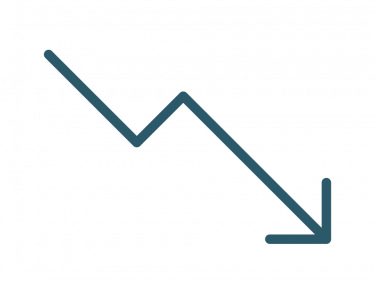Analyzing Unemployment during COVID-19
 Unemployment on Cape Cod rises and falls with tourism in a typical year, but the COVID-19 pandemic resulted in a historically high number of claims for the region. The Cape Cod Commission is analyzing local unemployment claims data to better understand how the pandemic is impacting our region.
Unemployment on Cape Cod rises and falls with tourism in a typical year, but the COVID-19 pandemic resulted in a historically high number of claims for the region. The Cape Cod Commission is analyzing local unemployment claims data to better understand how the pandemic is impacting our region.
Commission staff is evaluating the uniformity of impacts region-wide to determine if the typical year employment in some communities resulted in increased vulnerability to COVID-19.
The Commission’s unemployment dashboard combines two datasets: monthly average unemployment and weekly continued unemployment claims, both by town and industry.
According to the US Bureau of Labor Statistics, the 5.3% unemployment rate for March in Barnstable County skyrocketed to 21.5% in April, once the state’s stay-at-home orders were implemented to reduce the spread of COVID-19. In May, when continued unemployment claims peaked in the region, Cape Cod’s top five employment sectors – Health Care and Social Assistance, Accommodation and Food Service, Retail, Educational Services, and Construction- all saw unemployment claimants increase more than tenfold when compared to May 2019.
Throughout Cape Cod, Accommodation and Food Service had the highest number of continuing unemployment claims, followed by Retail and Health Care and Social Assistance. On the Outer Cape, although the Construction industry is larger, Arts, Entertainment, and Recreation saw more unemployment claims. Other Services (often personal care-related businesses) were disproportionately affected on the Lower Cape, but by June the total number of claims was surpassed by those in Construction. In the same month, on the Upper Cape, the number of claims in Health Care and Social Assistance surpassed Retail claims.
Some industries showed a significant year-over-year increase in continued unemployment claims, namely: Arts, Entertainment, and Recreation; Professional, Scientific, and Technical services; and Transportation and Warehousing. While fewer claims were filed in these sectors overall, the increase in unemployment has been sustained throughout the pandemic rather than peaking in the spring.
The Commission’s unemployment dashboard continues to be updated as new data becomes available through the MA Department of Unemployment Assistance. This information is intended as a tool for state and local officials navigating economic recovery from the pandemic and continuing to build Cape Cod’s resiliency.
Explore the unemployment data dashboard: https://datacapecod.com/unemployment/
Related Posts




